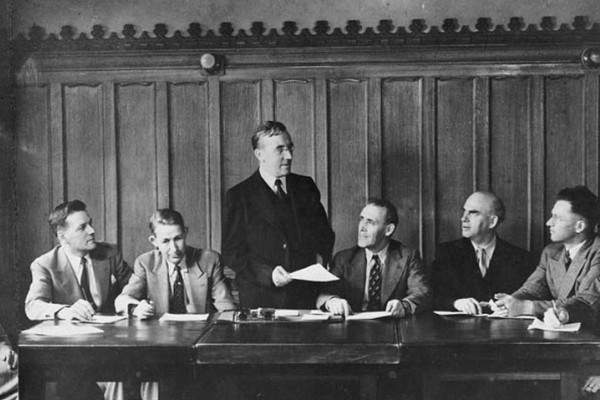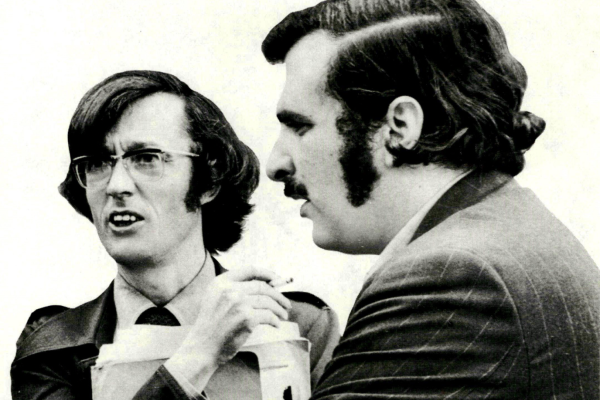-

The Regina Manifesto’s unfinished business: the case for public banking
Canada’s banks no longer serve the real economy. Decades of private lending have fuelled housing bubbles, record household debt, and economic instability. Revisiting the CCF’s Regina Manifesto, James Hardwick makes the case for public banking—a solution to redirect credit toward housing, infrastructure, and productive investment while reclaiming finance as a public utility.
-

How not to start a party
The launch of Your Party, spearheaded by Jeremy Corbyn and Zarah Sultana, promised a bold new left alternative to Keir Starmer’s Labour. Yet personality clashes, rival power bases, and unresolved questions of strategy quickly derailed momentum. Unless it reimagines socialism for the 21st century, the project risks repeating Labour’s failures.
-

Opposition to AI is a key path to renewal for the NDP
In charting its path forward, the NDP should place a bold opposition to AI at the heart of its political agenda. This stance must go beyond tepid calls for regulation or ethical oversight. It should reject the prevailing centrist narrative: that governments must embrace AI uncritically or risk being left behind in the presumed march of technological progress.
-

Where does the Canadian left go from here?
Jack Layton was the first progressive politician who inspired me enough to go to a rally. He used to say optimism is better than despair. I think he was half right. Right now pessimism of the intellect says the Canadian left is in a bad place. But optimism of the will demands that if we have failed, we fail again, and fail better until we succeed.
-

It’s time for the NDP to embrace democracy
Though much of the party’s focus will now necessarily shift towards the selection of a compelling leader, that leader will also need a more vibrant and shared raison d’etre with which to galvanize voters. As the NDP goes back to the proverbial drawing board it seems appropriate that they examine that second word in their own name: democratic.
-
_600_400_90_s_c1.jpg)
Socialism’s prospects have never been better
In 1995 I moved to St. Petersburg and lived there for ten years. Although my antennas were always up for signals of a socialist spirit, or even just the memory of one, they registered none. My reaction was to dive deeper into the history of the 1917 revolution, and I began noticing things about it that were out of sync with my reading of Marx and Engels.
-

Cuba, Canada, and the second Trump administration
As the Cuban Revolution enters its 66th year, the country is still in a difficult position, perhaps its most difficult since the overthrow of the Batista government in 1959. Many of the struggles of the Special Period remain, not to mention a migration crisis, hundreds of thousands of Cubans having left recently and more attempting to leave through various channels, some dangerous.
-

Sociologist against the grain: a tribute to Michael Burawoy (1947-2025)
At Berkeley, while in his mid-40s, Michael Burawoy would deliver his talks wearing the same red shirt. He would walk briskly across the podium full of passion for what he was about to discuss. On his office door, he proudly displayed the logo that marked the relaunching of the South African Communist Party in 1990, a testament to his unwavering commitment to social change.
-

Responding to Donald Trump with a popular democratic project for Canada
The unfolding climate catastrophe, growing inequality, the disintegration of the country’s social safety net, and the rise of profoundly reactionary yet increasingly viable political forces at home and abroad make it imperative for Canadian socialists to develop strategies to begin to substantively challenge Canadian elites at the national scale.
-

The Waffle Manifesto: For an Independent Socialist Canada
In 1969, a caucus of NDP members known as the Waffle organized to promote a socialist and nationalist agenda, which included the replacement of US private ownership of Canadian industry with Canadian public ownership. Many of the core ideas that the Waffle stood for were first developed and debated in CD—by the very people who eventually emerged as Waffle leaders.



